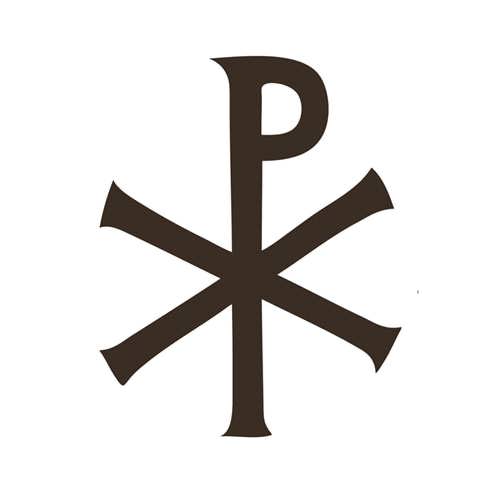
Posted on 08/18/2019 3:56:10 PM PDT by CondoleezzaProtege
There have been of late a splurge of populist history books damning Constantine the Great as the villain of the piece. Almost without exception they have drawn their picture of this most complex and complicated of late-antique Roman emperors from secondhand, clichéd and hackneyed books of an older generation, adding their own clichés in the process. Constantine has been sketched luridly, as the man who corrupted Christianity either by financial or military means. At long last we have here, in Peter Leithart, a writer who knows how to tell a lively story but is also no mean shakes as a scholarly historian.
This intelligent and sensitive treatment of one of the great military emperors of Rome is a trustworthy entrée into Roman history that loses none of the romance and rambunctiousness of the events of the era of the civil war, but which also explains why Constantine matters: why he was important to the ancient world, why he matters to the development of Christianity (a catalyst in its movement from small sect to world-embracing cultural force). It does not whitewash or damn on the basis of a preset ideology, but it certainly does explain why Constantine gained from the Christians the epithet 'The Great.' For setting the record straight, and for providing a sense of the complicated lay of the land, this book comes most highly recommended. (John A. McGuckin, Columbia University)

(Excerpt) Read more at amazon.com ...
The are many good things about the internet but on the bad side are all the anti Christian videos claiming Rome created Christianity for one reason or another or that Jesus didn’t even exist and other nonsense.
But for folks who don’t know too much, it can sway them.
Knowing Roman history would help them see how nonsensical the claims are.
Hope Leithart can get John Batchelor to review book
Of course Rome didn’t create Christianity .... however, it surely changed it.
Exhibit 1: Nicene Creed. When Christ cried out on the cross ‘My God, My God .... why hast thou forsaken me’ ....
Christ was not crying out to himself! The Nicene Creed has been placed higher than the Bible in determining ‘Heresy’.
A person’s beliefs can be in accordance with the Bible, yet he is still labelled a heretic if he does not subscribe to the Nicene Creed.
Truly the tail has been waging the dog within what is known as Orthodox Christian Christology.
What, specifically, is in the Creed that is not in the Bible?
Seriously asking.
I collect ancient Roman coins. You can find genuine Constantine coins about the size of a dime, on eBay for only a few dollars. You won’t find Christian symbols on his coins, but later ones will show the chi-rho (looks like a P on an X) which indicate a Christian Roman emperor.
 >
>
The most interesting aspect is that Constantine unwittingly started the process that ended slavery in most of the world.
Nothing.
My guess is that teppe subscribes to some form of the Arian heresy.
Denial of the true divinity of Jesus Christ taking various specific forms, but all agreed that Jesus Christ was created by the Father, that he had a beginning in time, and that the title "Son of God" was a courtesy one.
All forms of Arianism denied that Jesus Christ is "consubstantial with the Father" but proposed either "similar in substance", or "similar", or "dissimilar" as the correct alternative.
Your assignment: read it from beginning to end. Comment on its status as prophecy. Thank you.
The christological theology that developed in the early Church was a response to Christians who read the Bible and concluded that Jesus wasn’t God, as well as to those read the Bible and concluded that Jesus wasn’t a human being, the most extreme ones claiming that he didn’t even have a true physical body. Kudos to the Fathers of the councils, and to God, for straightening that out.
Hear, Hear! Very nicely said.
Acts 2:36 makes it plain for those who have ears.
One God and one Lord, simple.
It was great that he could cast out demons, and the Zippo lighter thing was cool.
The dispute between Orthodoxy and the Latin Church is primarily whether the Spirit proceeds from the Father and the Son, or only from the Father (in the Nicene creed, the Latin word is “filioque”)
Before Constantine the day of Saturday was the Christian sabbath. Constantine decreed Sunday to be the new Christian sabbath. Sunday was the day used by Pagans who worshipped the Sun. A lot of pagan symbols are used by Christians to this day.
But Christ rose from the dead on Sunday.
In some languages the word of “Sunday” does not have to do with the “Sun” but with “Day of the LORD” (Domingo/Domenica/Dimanche in Spanish/Italian/French respectively)
Or ‘voskreseniye’ (’Resurrection’) in Russian etc...
During the French Revolution, radical secularists changed the calendar and removed Sunday altogether, paganizing high holy days, and threw B.C./A.D. on its head by beginning time itself with the founding of the French Republic. Threw the population in for a loop for a good decade plus!
False. The Christian day of worship, the Lord’s Day, has always been Sunday. I can prove what I say. What’s your evidence?
Even SDA scholars admit that Christians kept a Sunday sabbath observance long before Constantine.
Trinitarians don't think that he was; the Athanasian creed quite clearly explains that the Son is not the Father.
“Let us make man in our image.” [Genesis 1:26]
Elohim: The noun has a masculine plural ending.
Disclaimer: Opinions posted on Free Republic are those of the individual posters and do not necessarily represent the opinion of Free Republic or its management. All materials posted herein are protected by copyright law and the exemption for fair use of copyrighted works.